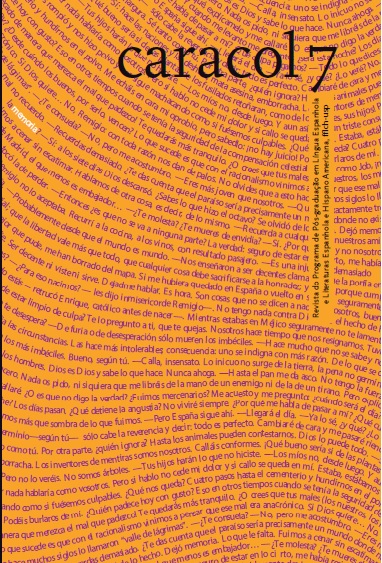“Adiós, adiós, Europa, te me vas de mi alma, de mi cuerpo cansado, de mi chaqueta vieja”: the exile of Jorge Guillén
DOI:
https://doi.org/10.11606/issn.2317-9651.v1i7p210-227Keywords:
Jorge Guillén, Exile, Franco’s dictatorship, Fragmented subjectAbstract
Jorge Guillén’s anthropological question – “Is being a man being on the road?” – raises the existential dilemma of the human being as a fragmented subject, constantly looking for their own identity. The poet from Valladolid, who can be considered one of the most brilliant members of the Generación del 27, tells the tragic experience of Franco’s dictatorship and the exile. His poems describe a feeling of helplessness and exclusion, which is present in most of the verses of Clamor. The deep meaning that lies beneath Guillén’s ontological question, which emphasizes the semantic opposition of the two verbs, can be found in the innermost essence of the human being, who is constantly divided between the stable and unchangeable condition of their status of an eternal traveller. This is related to a precarious and changeable existence, subjected to the rules-no-rules of chance.
Downloads
Downloads
Published
Issue
Section
License
Authors who publish in this journal agree to the following terms:
- Authors retain copyright and grant the journal the right of first publication, with the work simultaneously licensed under a Creative Commons Attribution License, which permits the dissemination of the work with recognition of authorship and initial publication in this journal.
- Authors are allowed to enter into additional contracts separately for non-exclusive use of the version of the work published in this journal (such as publication in an institutional repository or as a book chapter), with recognition of authorship and initial publication in this journal.
- Authors are allowed and encouraged to publish and distribute their work online (e.g., in institutional repositories or on their personal page) at any point before or during the editorial process, as this can generate productive changes, as well as increasing the impact and citation of the published work (see The effect of open access…).




